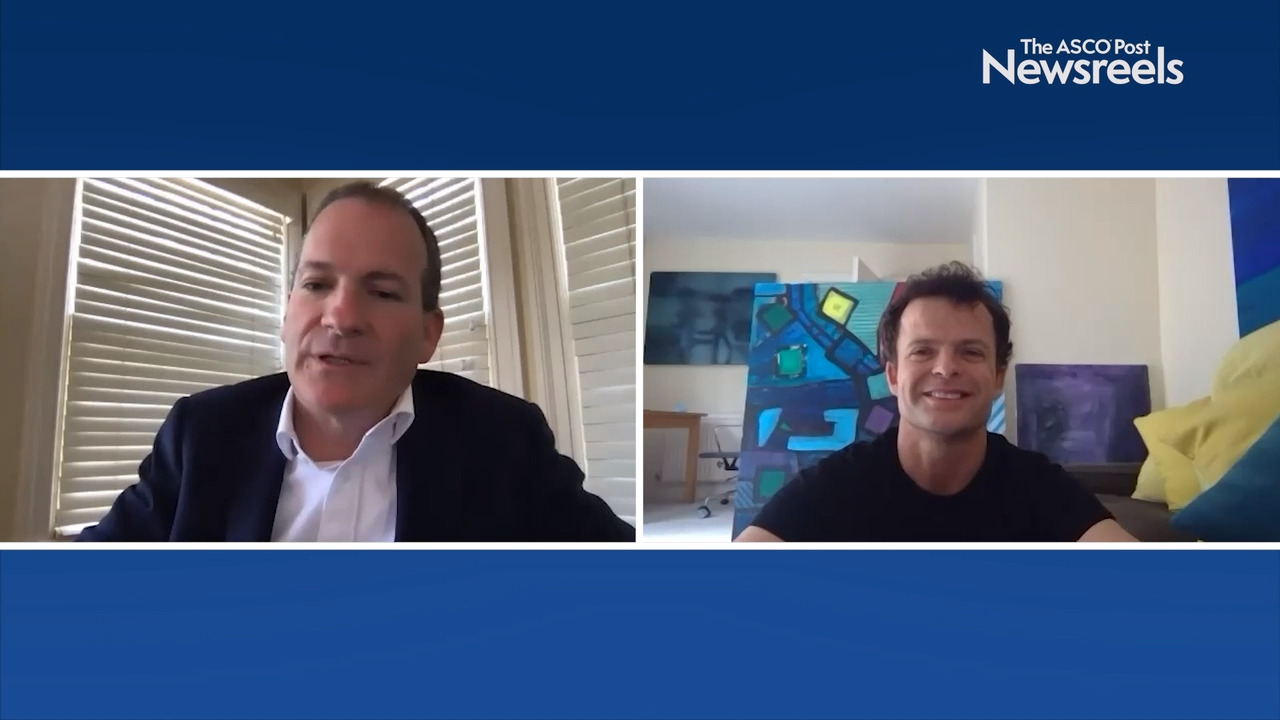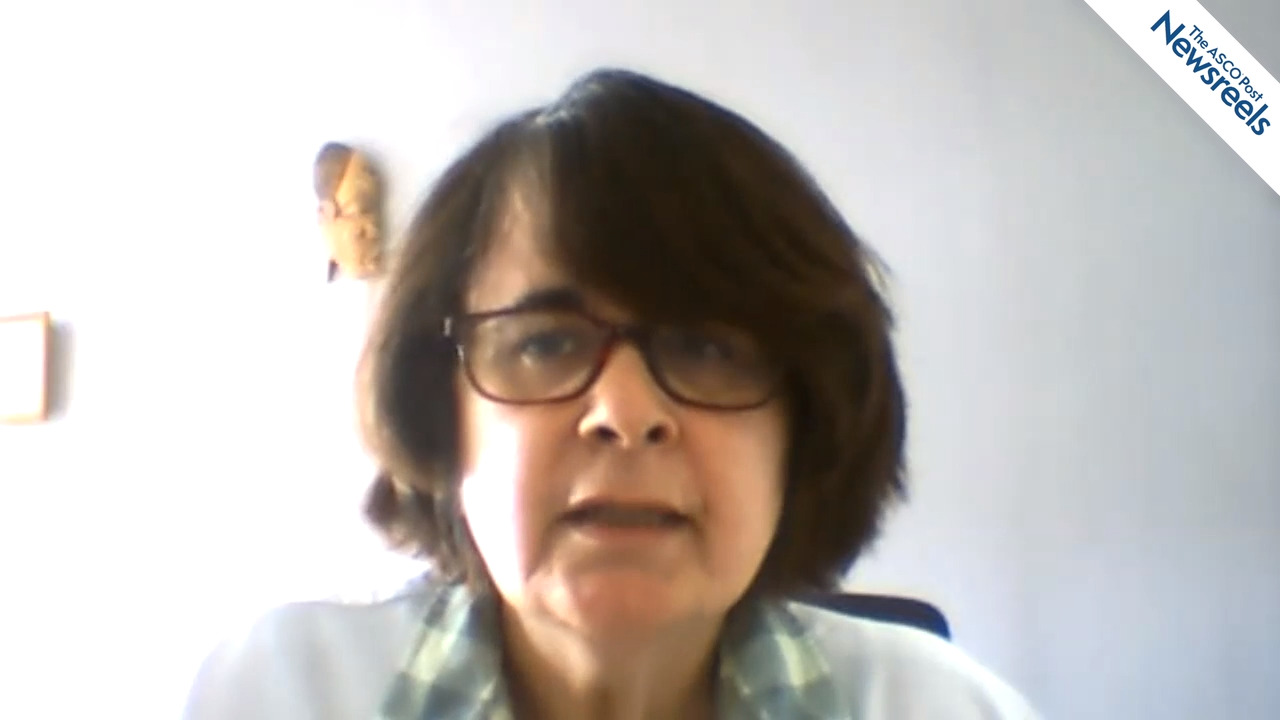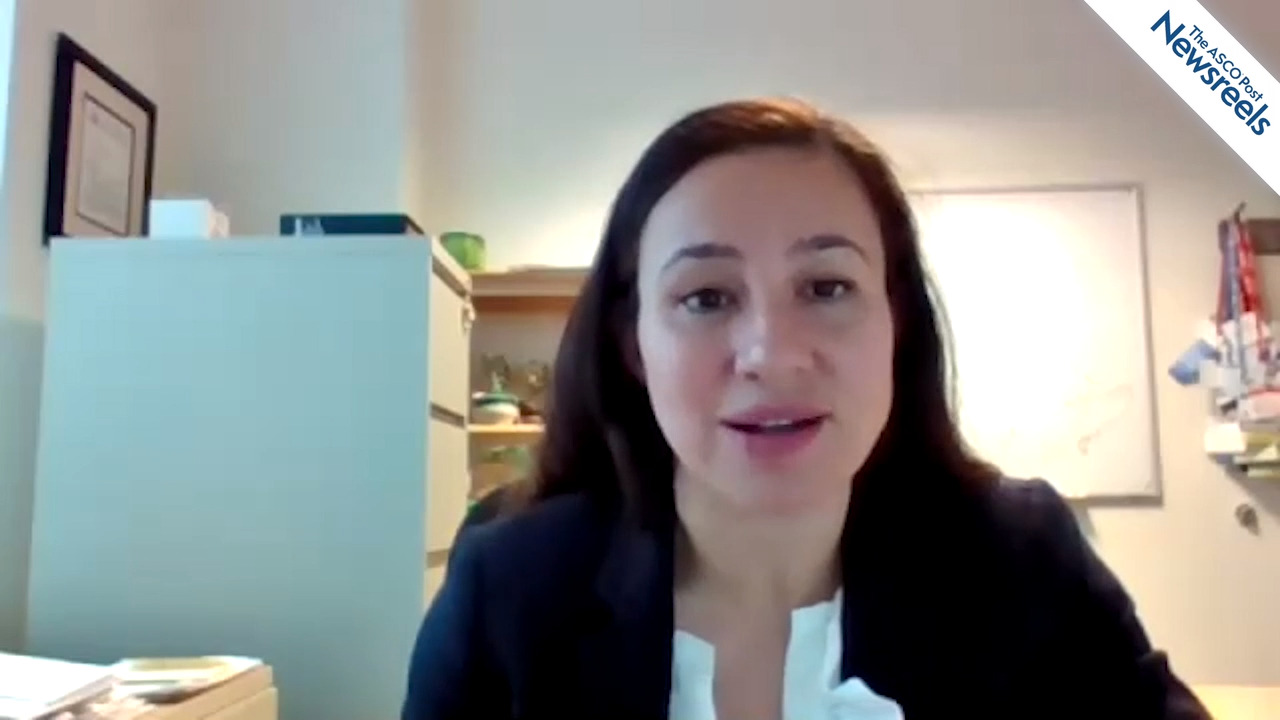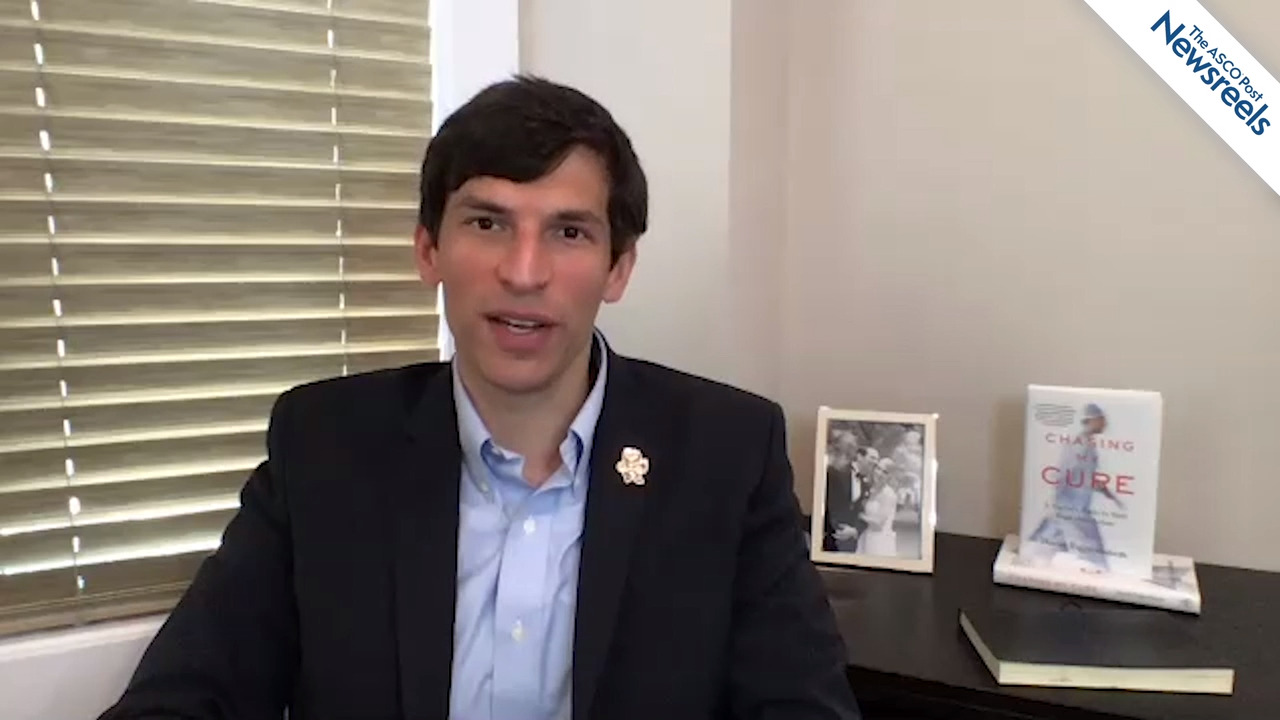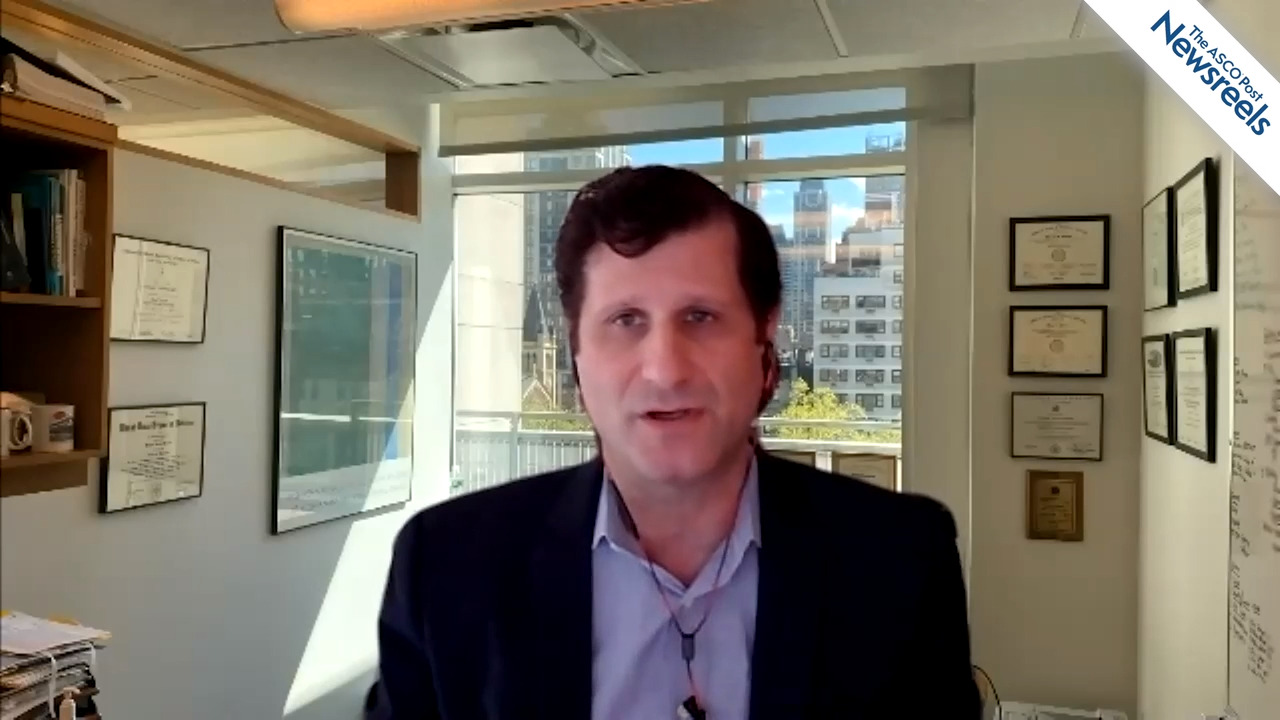Nancy U. Lin, MD, on Metastatic Breast Cancer: Tucatinib, Trastuzumab, and Capecitabine
ASCO20 Virtual Scientific Program
Nancy U. Lin, MD, of Dana-Farber Cancer Institute, discusses the HER2CLIMB study of patients with previously treated HER2-positive metastatic breast cancer that had metastasized to the brain. Adding tucatinib to trastuzumab and capecitabine doubled the intracranial response rate and reduced the risk of death by nearly half, compared with trastuzumab plus capecitabine (Abstract 1005).
The ASCO Post Staff
As Thomas Powles, MD, PhD, of Queen Mary University of London, prepares to deliver his late-breaking presentation at the ASCO20 Virtual Scientific Program (LBA-1), he talks with Christopher Sweeney, MBBS, of Dana-Farber Cancer Institute, about current therapy: PD1/PDL1 inhibition in second-line treatment and as monotherapy in the first-line setting, as well as the concept of maintenance switch.
The ASCO Post Staff
Patricia Pautier, MD, of Institut Gustave Roussy, discusses final results of the phase II LMS-02 study, which showed the combination of doxorubicin and trabectedin to be an effective first-line therapy for patients with leiomyosarcoma, with an acceptable safety profile (Abstract 11506).
The ASCO Post Staff
Rana R. McKay, MD, of the University of California, San Diego, discusses the results of a phase II trial of intense neoadjuvant hormone therapy followed by radical prostatectomy in men with high-risk prostate cancer. The data show that 21% of patients had a favorable pathologic response (Abstract 5503).
The ASCO Post Staff
David C. Fajgenbaum, MD, MBA, of the University of Pennsylvania, who trained as an oncologist, summarizes his opening lecture, a dramatic story of his battle against Castleman, a disease of the lymph nodes, his multiple near-death experiences, and the path that led him to develop a cooperative research effort making a difference for him and other patients with this idiopathic orphan illness.
The ASCO Post Staff
Michael J. Morris, MD, of Memorial Sloan Kettering Cancer Center, discusses phase III data from the CONDOR trial, which showed that PSMA-targeted PET scans detected and localized occult disease in most men with biochemically recurrent prostate cancer presenting with negative or equivocal conventional imaging findings (Abstract 5501).
